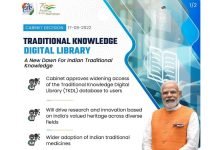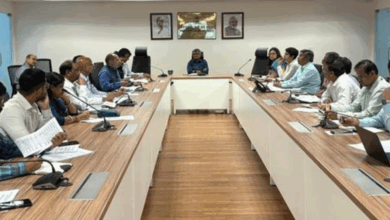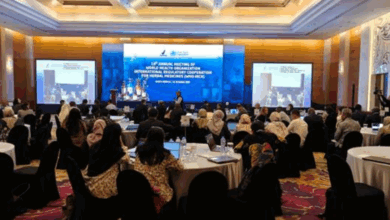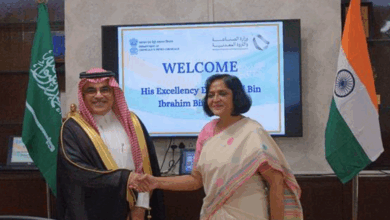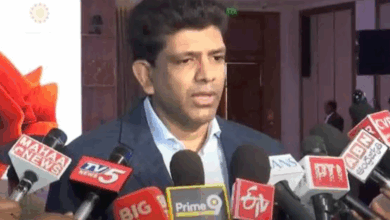Director General, WIPO visits CSIR-Traditional Knowledge Digital Library
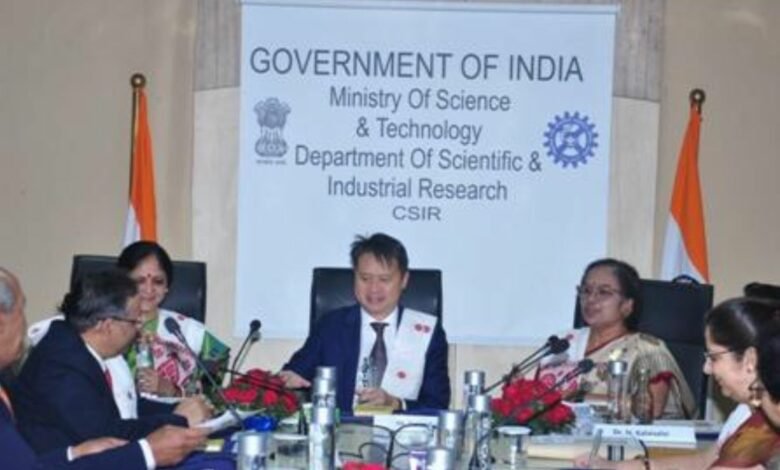
Mr. Daren Tang, Director General, of the World Intellectual Property Organization (WIPO) and other distinguished delegates from the WIPO visited the CSIR-Traditional Knowledge Digital Library (TKDL) facility and participated in discussions on the CSIR Innovation System, TKDL, CSIR Technologies, and CSIR’s Current IP Strength & Strategy.
The CSIR team was led by Dr. (Mrs.) N. Kalaiselvi, Secretary, DSIR and Director General, CSIR. The distinguished guests included Prof. Unnat P. Pandit, Controller General of Patents, Designs & Trade Marks (CGPDTM), and representatives from the Department for Promotion of Industry and Internal Trade (DPIIT), the office of the CGPDTM, and Ministry of AYUSH.
Speaking on the occasion, Dr. Kalaiselvi elaborated on the proud IP legacy of CSIR, including the IPR policy and strategy. Welcoming Mr. Tang, she said his visit and the discussions would provide further impetus to the innovation ecosystem of the CSIR family. She spoke about the potential for new collaborative efforts between CSIR and WIPO. She also opined that this visit by Mr. Tang and the WIPO delegation would highlight CSIR’s S&T capability at the global level.
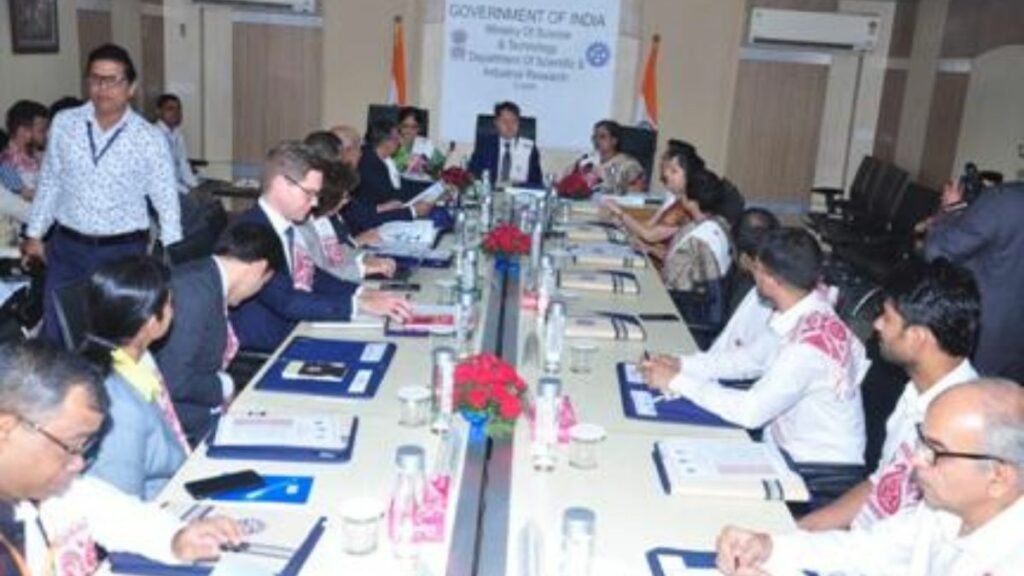
Mr. Daren Tang elucidated WIPO’s vision to bring about more inclusiveness and position it as a powerful catalyst to transform IP system. He said that India’s S&T capacity was not new and dated back several 1000 years. He was happy to note the great strides being made by CSIR as a key Indian innovator and appreciated the organization’s activities related to the TKDL, IP targeted at the Sustainable Development Goals (SDGs), Patinformatics and IP Audit. He expressed WIPO’s support to CSIR for a meaningful and impactful journey together.
The visit to the CSIR-TKDL Unit showcased the various activities related to the digitization of ancient Indian texts of traditional medicine namely Ayurveda, Unani, Siddha, and Sowa Ripga, Yoga and the third-party submissions to prevent misappropriation of traditional knowledge through wrong grant of intellectual property. The WIPO delegates interacted with the CSIR-TKDL team to understand the interdisciplinary nature of the work and its impact as a one-of-a-kind prior art database of traditional knowledge. Mr. Daren Tang and team WIPO appreciated the work on TKDL and opined that this is a required strategy for South-South cooperation.
At the exhibition, CSIR showcased its globally benchmarked technologies and potentially game-changing technological pursuits in the pipeline to the delegates. The DG, WIPO, CGPDTM and team appreciated the activities of the CSIR, stating that the technologies were all objective-oriented and supported by a well-thought-through IP strategy. The DG, WIPO and CGPDTM requested that the details of the showcased CSIR technologies be included in the national IP Compendium being put together by the O/o CGPDTM.
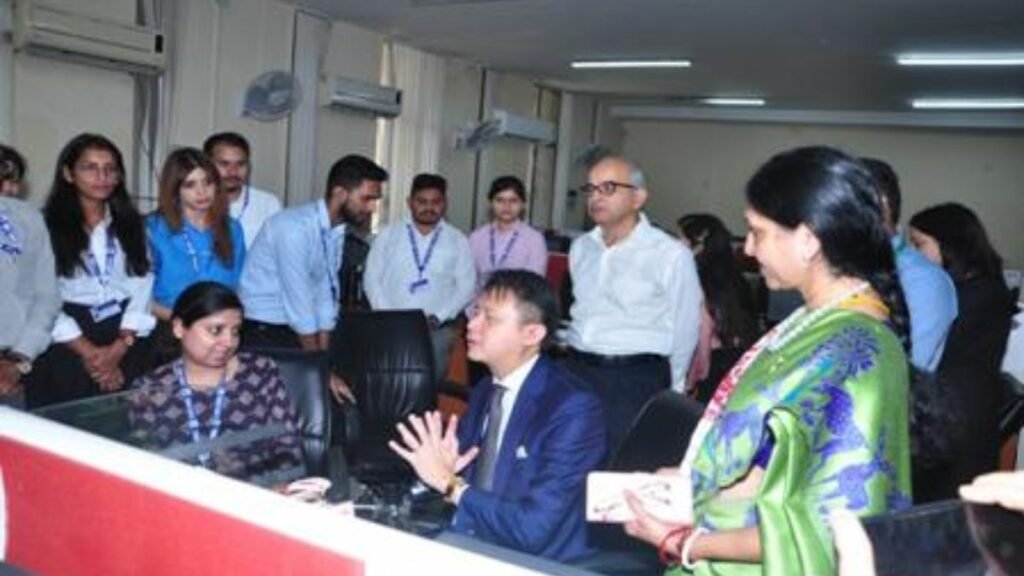
About CSIR-TKDL: Traditional Knowledge Digital Library (TKDL) is a pioneering Indian initiative to prevent exploitation and to protect Indian traditional knowledge from wrongful patents mainly at International Patent Offices. India’s rich and time-tested traditional medicinal knowledge which exists in languages such as Sanskrit, Hindi, Arabic, Persian, Urdu, Tamil etc. is neither accessible nor comprehensible for patent examiners at the international patent offices. TKDL contains Indian traditional medicine knowledge available in the public domain and pertains to classical/ traditional texts related to Ayurveda, Unani, Siddha and Sowa Rigpa in a digitized format and is available in five international languages (English, French, German, Spanish and Japanese)
About WIPO: The World Intellectual Property Organization (WIPO) is the global forum for intellectual property (IP) services, policy, information and cooperation. It is a self-funding agency of the United Nations, with 193 member states. WIPO’s mission is to lead the development of a balanced and effective international IP system that enables innovation and creativity for the benefit of all. The Organization’s mandate, governing bodies and procedures are set out in the WIPO Convention, which established WIPO in 1967. Among other functions, WIPO provides a policy forum to shape international IP rules, provides global services to protect IP across borders and resolve disputes as well as facilitate cooperation and capacity building in all countries.
Disclaimer: This is an official press release by Pib.

